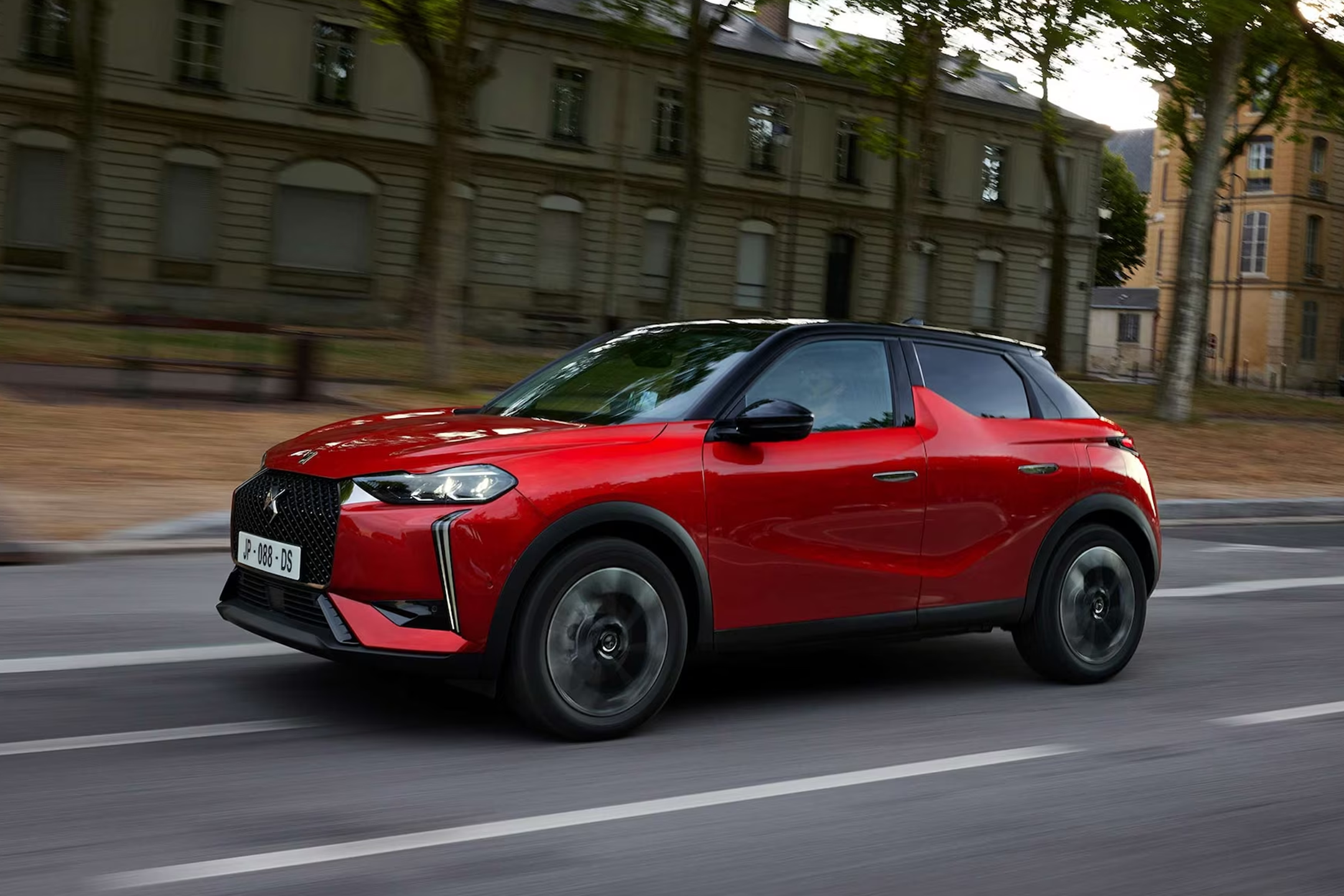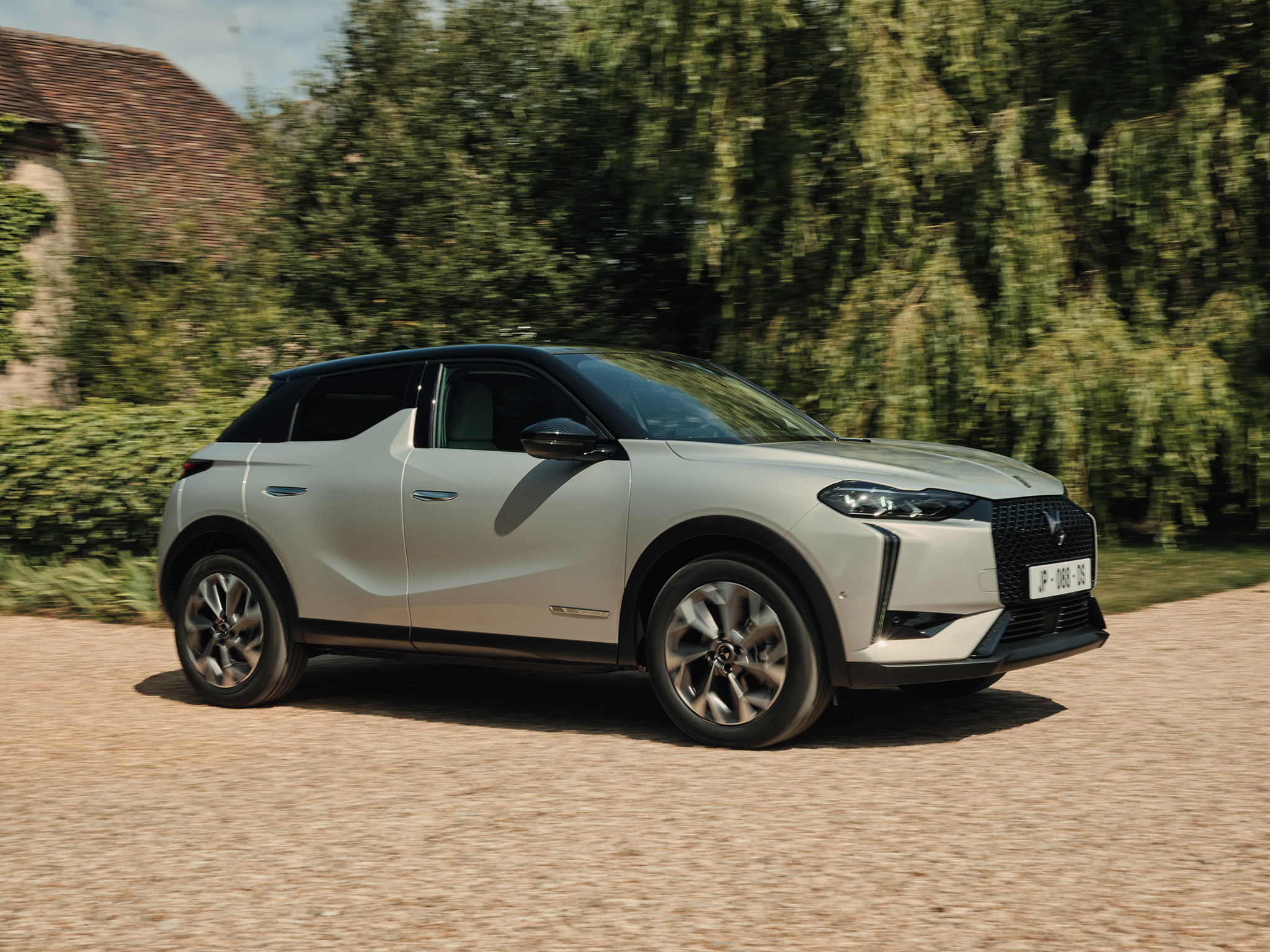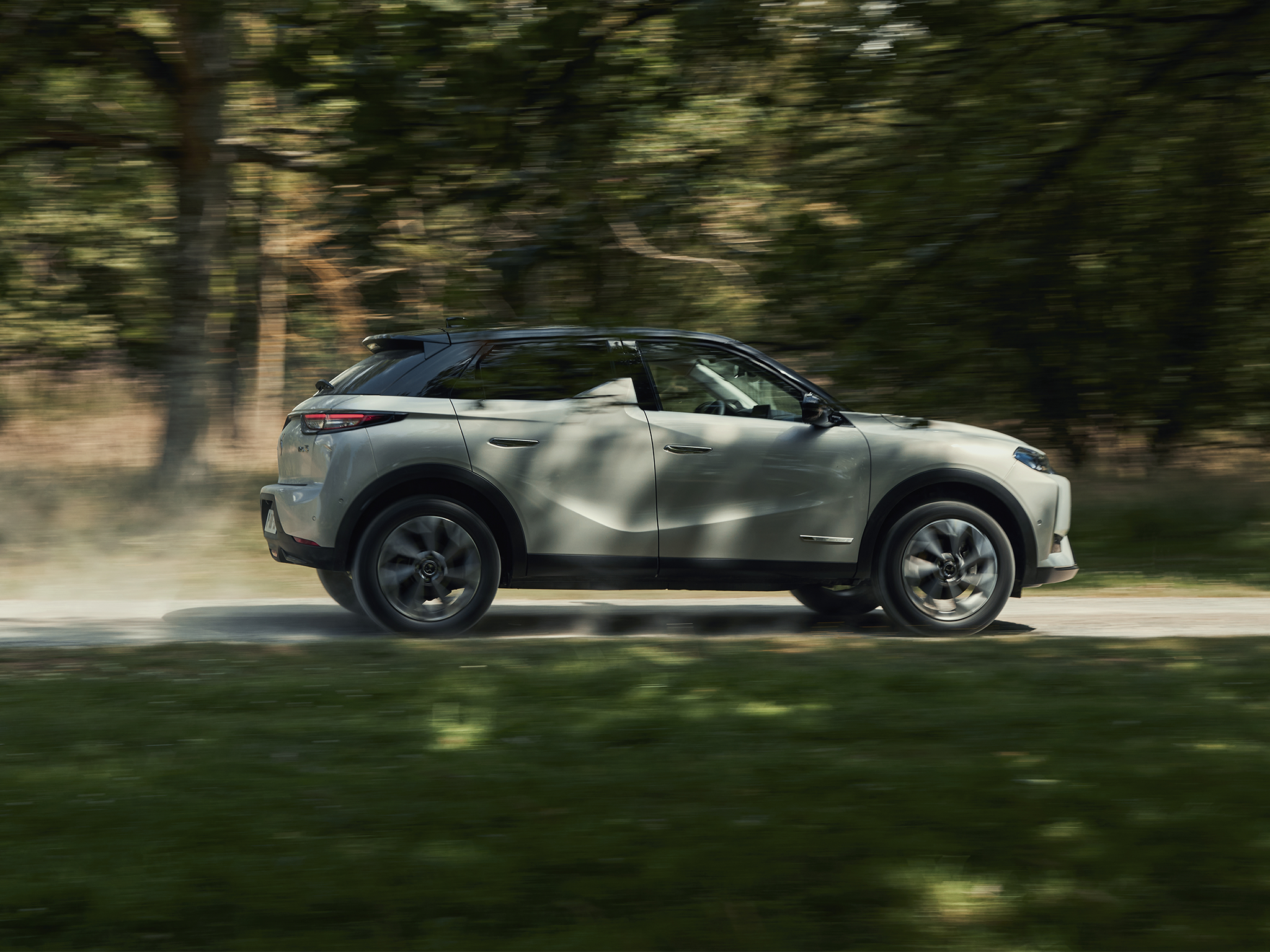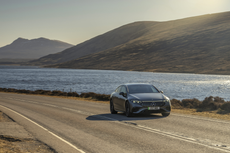DS 3 E-Tense review: Compact and comfortable electric SUV
A compact crossover that oozes French chic, with an upmarket image and a price to match. Updated in 2023 with a new battery and electric motor for a longer range

If you thought all electric cars are boring, the DS 3 is conclusive evidence that they’re not. While it ticks all the boxes in terms of sensible EV benefits such as a quiet drive, good acceleration, zero emissions and the potential for low running costs the main appeal of the DS 3 is in the way it looks and feels. Inside and out, it does things differently to much of the competition, with a unique approach to design and materials that makes it feel as much a fashion item as a mode of transport.
It’s to be commended for bringing something unique to the party, but it’s hard to recommend the DS 3 on rational grounds. It’s competitive for battery range and efficiency and has bags of charm but it’s off the pace in a few areas and it’s expensive to buy. Overall, it doesn’t do enough to justify its high price.
How we tested
I put the DS 3 E-Tense to the test zipping around rural roads and on a longer trip to London but mostly on busy urban streets where it feels most at home.
DS 3 E-Tense: From £38,465, DSautomobiles.co.uk

Independent rating: 6/10
- Pros Stylish, energy-efficient, comfortable
- Cons Expensive, moderate range, not that practical
- Price range £38,465-£43,325
- Battery size 54kWh
- Maximum claimed range 248 miles
- Miles per kWh 4.4
- Maximum charging rate 100kW
Battery, range, charging, performance and drive
Compared with early versions of the DS 3 the latest model has a slightly longer range, and you now get an official maximum of 248 miles. That’s very similar to what you get with most smaller electric cars and almost identical to what you can expect from alternatives from the Stellantis group that share the same motor and batteries – these include the Alfa Romeo Junior, Citroen e-C4 and Peugeot 208 and 2008.
Maximum charging speed is 100 kW, which is average for this type of car – it’s a bit disappointing when higher-spec DS 3 models cost as much as Tesla Model S and Volkswagen ID.3 models that can charge at speeds of up to 175 kW and 250 kW respectively.
While it’s not as quick as some electric cars, the DS 3 feels nippy from a standstill and has plenty of overtaking power. It’s smooth and quiet, and it feels particularly suited to urban stop-start traffic thanks to its light steering.
Interior, practicality and boot space
DS is Citroen’s premium sub-brand and although the DS 3 shares many parts with less expensive Citroen models it does feel more upmarket inside thanks to some extra flair and materials that have a higher-grade look and feel. In fact the interior is a real feast for the eyes – a combination of diamond-shaped vents and switches and shiny metallic trim that gives it a jewel-like appearance. It has a pleasantly bespoke feel but there’s a sense of form over function since it can be tricky to find the right switch at a glance.
You’re unlikely to buy the DS 3 as a family car and that’s just as well – it’s fairly small on the outside and you don’t get the TARDIS-like feel you do with some cars on the inside. There’s plenty of space up-front, but things are a bit claustrophobic in the back. Boot capacity is pretty good at 350 litres to the load cover – nowhere near the 466-litre space you get in a Hyundai Kona Electric but more than the Volvo EX30’s 318-litre capacity.

Technology, stereo and infotainment
You can buy the DS 3 in a choice of two trims – Performance Line or Opera – and both include the same 10.3-inch touchscreen in the centre of the dashboard. It has some smart graphics and is responsive and fairly easy to navigate but it’s not as intuitive to use – or as large – as the one you get in some rival cars. Both versions also have a 7-inch digital driver display – it too looks good without being quite as impressive or up-to-date as what you’d find in some of the latest models.
Support for Apple CarPlay and Android Auto and an eight-speaker sound system are standard for every DS 3; top-spec Opera trim also includes a head-up display, voice recognition and over-the-air updates. These are available as options for Performance Line models, as is a pack that includes a reversing camera, front parking sensors and a blind-sport warning system – all of which are standard with Opera trim.
Prices and running costs
With prices either just below or a bit above the £40k mark depending on trim the DS 3 is comparatively expensive for a car of its size, even though it has a premium feel and lots of equipment as standard. Entry-level versions of the Peugeot e-2008 and Volvo EX30, for example, come in well under £35k. If you’re buying outright you should be able to get a discount on the DS 3’s list price, but it would need to be a big one to prevent the DS 3 being a ‘heart-over-head’ financial decision.
On the plus side, the DS 3 is impressively energy-efficient, giving you more miles per charge than many rivals, and insurance groupings are competitive.

DS 3 E-Tense rivals
FAQs
How long does it take to charge?
DS quotes a 0-80 per cent charging time of 30 minutes using a 100 kW charger, or 0-100 per cent in seven and a half hours using a 7.4 kW home charger.
How much does it cost – is it worth it?
DS 3 prices start at £38,465 and rise to £43,325, which is a lot for a car of this size and range. It’s a car for its style and character rather than any rational criteria.
Does DS replace batteries for free?
DS cars have the same warranty cover as their Citroen counterparts so the car itself is covered for three years or 60,000 miles, while the e-C4’s battery has an eight-years/100,000-mile warranty (whichever comes sooner). DS will replace or repair the battery if it drops below 70 per cent capacity during that time.
The verdict: DS 3 E-Tense
I’m a fan of the DS 3’s sophisticated design and it’s relaxing to travel in but there are other small electric cars that cost a lot less and have longer ranges.
Join our commenting forum
Join thought-provoking conversations, follow other Independent readers and see their replies
Comments





Bookmark popover
Removed from bookmarks